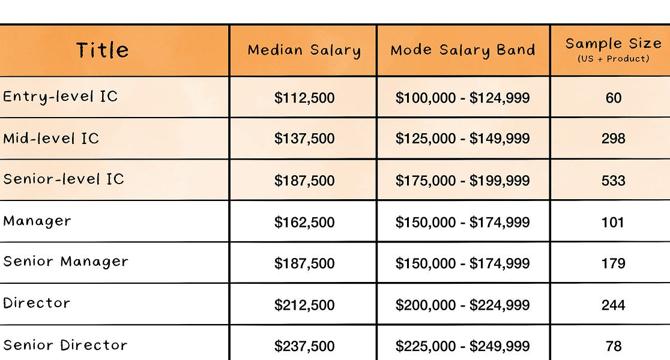Lenny's Newsletter
8M
385

Image Credit: Lenny's Newsletter
How much do U.S. product managers really make?
- We recently analyzed over 5,000 survey responses from Lenny’s Newsletter subscribers to answer the question: “How much do U.S. product managers really make?” We are focusing on U.S. product managers at all levels as they are one of the larger segments represented in this community (n=1,740).
- As product managers move up the ranks, salaries predictably increase, especially for individual contributors (ICs). But one surprising twist is that senior ICs often out-earn managers, challenging the assumption that management roles always pay more.
- We uncovered a number of insights in the data, but the biggest and perhaps most unexpected theme is the rise of the IC career path. This trend suggests that the value of ICs is rising, a shift further reinforced by recent layoffs disproportionately affecting middle managers, thus “flattening” organizations.
- Does the company’s stage affect higher senior IC salaries? Yes and no. Among senior ICs at private companies, those earning in the 75th percentile or higher typically work at Series C or later-stage companies.
- Senior ICs still have a higher mode salary band of $175K to $200K compared with $150K to $175K for senior managers, and senior IC roles have a tighter salary range between the low and high points in the range than senior manager roles.
- The correlation between total compensation package (salary, equity, and bonus) and satisfaction is 0.31, indicating a moderate positive relationship. This suggests that as compensation increases, satisfaction with total compensation also tends to increase, but the relationship is not overly strong, as you might expect.
- The data shows that job level is one of the strongest predictors of salary. This means that if you want to increase your earnings, focus on advancing your role, whether through a higher IC level or transitioning to management.
- For employers, understanding the value of experienced ICs is crucial. Senior ICs play vital roles in driving product success and can command salaries that rival management roles.
- By focusing on the job level and offering a well-rounded compensation package, both job seekers and employers can create win-win scenarios in today’s competitive market.
- For round three, we plan to team up with Pave, domain experts in the compensation space, to share data (including equity and bonus benchmarks) and trends related to this segment and others.
Read Full Article
19 Likes
For uninterrupted reading, download the app